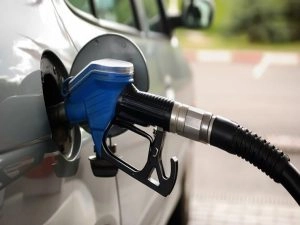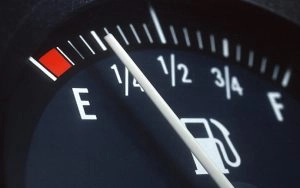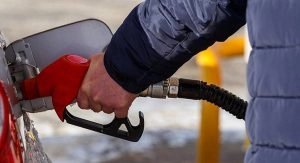Understanding how to enhance fuel efficiency is an important factor in maintaining the sustainability and performance of a car. The term fuel efficiency refers to the amount of fuel used by the car to turn its wheels per mile.
Gas mileage is affected by many factors, and therefore, understanding and improving gas mileage can help reduce fuel costs and maintain engine health.

Techniques to improve gas mileage in the car
There are many techniques that can be used to improve fuel efficiency.The gasoline in the car.Here are the top 13 techniques:
Maintaining the appropriate tire pressure.
Maintaining proper tire pressure is an effective technique to improve fuel efficiency in a car. Tires that are underinflated or overinflated will significantly increase fuel consumption, therefore it is advised to regularly check the tire pressure using a pressure gauge to ensure that they are operating at the proper pressure.
Improving gasoline mileage by maintaining proper tire pressure can lead to fuel savings and lowered fuel costs. In addition, tires that operate at the right pressure reduce wear on them and improve performance and grip on the road.
2- Use the appropriate engine oils.
Using the appropriate engine oils is an important part of techniques for improving gas mileage in the car. If the oils used are not suitable, this could lead to increased fuel consumption and engine damage. Therefore, it is advisable to determine the appropriate type of oil for the engine used in the car.
Choosing the appropriate oil is based on the type of engine, the surrounding weather conditions, and the car's previous maintenance history. For instance, if the engine is old or operates under harsh conditions, it is necessary to use oil with a higher viscosity. When changing the oil, make sure to replace the attached filter.
3- Regularly change the air filter.
Regularly changing the air filter is considered an important step in improving the car's fuel efficiency. It works to remove impurities, dust, and debris from the air that enters the engine. Thus, the engine can use clean air more effectively, subsequently improving its performance and reducing fuel consumption.
To achieve this, the air filter must be regularly changed every 12,000 to 15,000 kilometers, or according to your car manufacturer's recommendations. To carry out this process, the engine must be turned off and the air filter box cover should be opened. Then, you need to unfasten the clamp that holds the filter in place, and carefully remove the old filter. It is important to check the condition of the old filter and determine whether it needs to be replaced. If the filter is dirty or damaged, it must be replaced with a new one.
4- Reduce ozone and carbon in the exhaust.
The process of reducing ozone and carbon in the exhaust is an important step to improve fuel efficiency in the car. It works by reducing exhaust emissions, thereby improving environmental health and maintaining clean air.
To achieve this, it is necessary to maintain the engine and exhaust system regularly, and to conduct emission checks on a regular basis. There are also some simple procedures that can be followed to improve the quality of the exhaust, such as avoiding running the engine for long periods in idle mode, reducing driving speed and avoiding waiting in the car for extended periods.
5- Maintain a moderate speed.
Maintaining a moderate speed helps improve the car's fuel efficiency, and it's considered one of the important actions to reduce fuel consumption and save costs, as well as to reduce harmful emissions to the environment.
To achieve this goal, avoid driving at high speeds or excessively, adhere to the speed limit on the road, and avoid accelerating excessively when starting to drive or when stopping the car, as this leads to the consumption of large amounts of fuel.
You can also avoid driving on roads with many curves and steep slopes, as driving under such conditions consumes a lot of fuel.
Also read:Discover 4 reasons for the damage of your car's fuel pump.

6- Be cautious when using the air conditioning and heating systems.
The use of air conditioning and heating devices while driving significantly affects the car's fuel consumption. Therefore, drivers should be cautious when using these devices in order to improve fuel efficiency.
Firstly, it is recommended to turn off the air conditioner or heating devices when the weather is mild and the body does not need heating or cooling. Also, it is advised to operate these devices moderately and not to significantly increase the temperature, as this leads to a substantial increase in fuel consumption.
In addition, drivers should regularly check the air conditioning and heating systems to ensure there are no leaks in the system. Leaks lead to the loss of a significant amount of fuel and thus negatively affect the car's gasoline consumption.
By being cautious in using the air conditioner and heating devices, drivers can improve the car's fuel efficiency and save more money in the long run.
7- Be cautious when using the appropriate fuel.
The quality of the fuel used in the car is one of the important factors in improving gas mileage. Therefore, drivers should be cautious in choosing the appropriate fuel for their car according to the manufacturer's recommendations. They should avoid using low-quality or non-manufacturer-approved fuel.
In addition to this, one must avoid adding unauthorized chemicals or additives to the fuel tank, as they could impact the engine performance and fuel consumption. It is crucial to choose the appropriate fuel and refrain from adding non-approved substances.
8- Avoid idling in traffic for long periods.
Staying in traffic for long periods is one of the things that negatively affects the improvement of gas mileage in a car. This is because running the engine in idle consumes a large amount of fuel without benefit. Therefore, it is necessary to avoid staying in traffic for long periods as much as possible.
This can be done by choosing alternative routes or avoiding areas that experience heavy traffic during peak hours. If the driver is caught in traffic congestion, the engine should be turned off if the stop is going to be for a long period of time, in order to save fuel.
9- Additional Gears
The extra gears are used to significantly improve the car's fuel efficiency. These gears adjust the gear ratio and provide the necessary power for motion. They are installed in the transmission and allow the engine to rotate at the lowest possible speed under certain conditions.
This leads to fuel conservation and reduction in its consumption. The optimal time to use the additional gears is determined by the speedometer and speed sensors to ensure they are used under the right conditions, improving the car's fuel efficiency.
10- Limit the weight carried in the car.
Limiting the weight carried in the car is one of the effective ways to improve gas mileage. The heavier the total weight of the car, the more fuel it consumes while driving. Therefore, the driver should avoid carrying unnecessary and extra items in the car.
External racks can be used to carry large items instead of carrying them inside the car. Additionally, one should not carry more fuel than necessary for a single trip, as each additional kilogram increases fuel consumption by 1-2%. Therefore, drivers should avoid overloading and maintain the weight carried in the car at the lowest possible level.
11- Maintaining the balance of the tires and axles.
Maintaining the balance of the tires and axles is an important factor for improving the car's fuel efficiency. When the tires are balanced, the engine works more efficiently and uses less fuel.
Imbalance in tires and axles leads to increased friction and wear, subsequently increasing fuel consumption. To achieve this goal, it is necessary to regularly check tire balance and air pressure, provide the correct pressure recommended by the manufacturer, and regularly conduct balanced axle inspections.
Therefore, maintaining the balance of tires and axles is a fundamental step to improve fuel efficiency in the car.
12- Using the cruise control
The cruise control can be used as a method to improve the car's fuel efficiency. This is done by setting a specific speed for the car and maintaining it, instead of driving erratically and unstably. It can limit unnecessary fuel consumption when driving at high speeds.
Some cars come with automatic speed control features that allow precise speed setting. The speed control features can also be used on some trip devices and modern cars.

13- Ensure the engine's performance.
Ensuring the performance of the engine is an important factor in improving the car's gasoline mileage, as the engine's performance can directly affect the fuel consumption efficiency. Therefore, it is recommended to carry out regular maintenance of the engine.
It is also important to pay attention to any unusual noises or vibrations in the engine, as this may indicate a fault that affects fuel efficiency. It is also recommended to monitor the speedometer readings and make sure there are no problems with the braking system, as excessive use of the brakes can lead to increased fuel consumption.
Using clean and appropriate fuel for the engine is also an important part in maintaining the engine's performance and improving gas mileage.

Comments